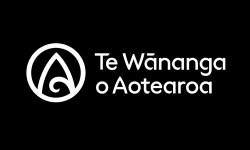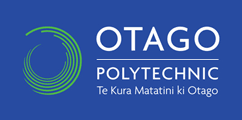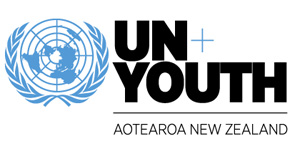Victoria University of Wellington is a university in Wellington, New Zealand. It was established in 1897 by Act of Parliament, and was a constituent college of the University of New Zealand.

The University of Otago is a collegiate university based in Dunedin, Otago, New Zealand. It scores highly for average research quality, and in 2006 was second in New Zealand only to the University of Auckland in the number of A-rated academic researchers it employs. In the past it has topped the New Zealand Performance Based Research Fund evaluation.
The education system in New Zealand is a three-tier model which includes primary and intermediate schools, followed by secondary schools and tertiary education at universities and polytechnics. The academic year in New Zealand varies between institutions, but generally runs from early February until mid-December for primary schools, late January to late November or early December for secondary schools and polytechnics, and from late February until mid-November for universities.

Socialism in New Zealand had little traction in early colonial New Zealand but developed as a political movement around the beginning of the 20th century. Much of socialism's early growth was found in the labour movement.

The University of New Zealand was New Zealand's sole degree-granting university from 1874 to 1961. It was a collegiate university embracing several constituent institutions at various locations around New Zealand. After it was dissolved in 1961 New Zealand had four independent degree-granting universities and two associated agricultural colleges: the University of Otago (Dunedin), University of Canterbury (Christchurch), University of Auckland (Auckland), Victoria University of Wellington (Wellington), Canterbury Agricultural College (Lincoln) and Massey Agricultural College.
A students' union, also known by many other names, is a student organization present in many colleges, universities, and high schools. In higher education, the students' union is often accorded its own building on the campus, dedicated to social, organizational activities, representation, and academic support of the membership.

The McGillicuddy Serious Party (McGSP) was a satirical political party in New Zealand in the late 20th century. Between 1984 and 1999, it provided "colour" to ensure that citizens not take the political process too seriously. The party's logo, the head of a medieval court jester, indicated its status as a joke party.

The Victoria University of Wellington Students' Association (VUWSA) is the official student association at Victoria University of Wellington, New Zealand. VUWSA was established in 1899 as the Victoria University College Students' Society.

Te Wānanga o Aotearoa is a wānanga in New Zealand. The organisation was established to improve the social and economic well-being of those who had previously had negative experiences with the secondary education system. As a Māori-led organisation grounded in Māori values, Te Wānanga o Aotearoa is committed to the revitalisation of Māori cultural knowledge. It is also focused on breaking inter-generational cycles of non-participation in tertiary education to reduce poverty and eliminate associated social issues. The organisation works towards ‘whānau transformation through education'.

Southern Institute of Technology (SIT) is one of New Zealand’s largest institutes of technology, with 13,758 students in 2017 for a total of 4,922 EFTs.
The New Zealand Union of Students' Associations (NZUSA) is a representative body that advocates for the interests of tertiary students in New Zealand. Between 1935 and 2006, it was known as the New Zealand University Students' Association, until it merged with the national polytechnic students' association.

Clarence Edward Beeby, most commonly referred to as C.E. Beeby or simply Beeb, was a New Zealand educationalist and psychologist. He was influential in the development of the education system in New Zealand, first as a director of the New Zealand Council for Educational Research (NZCER) from 1936, and then as Director of Education from 1940, initially under the First Labour Government. He also served as ambassador to France and on the UNESCO executive.

Otago Polytechnic is a public New Zealand tertiary education institute, centred in Dunedin with additional campuses in Cromwell and Auckland.

The Otago University Students' Association (OUSA) is the Students' Association of the University of Otago, New Zealand. OUSA was founded in 1890 to advance student interests on campus.

Tertiary education in Australia consists of both government and private institutions. Tertiary education is divided into two sectors; vocational education and training and higher education.

UN Youth New Zealand is a registered charity. It is powered solely by volunteers who are aged 25 or under or full-time tertiary students. It is the largest youth-for-youth organisation in Aotearoa New Zealand. Annually, over 3,000 young Kiwis from Northland to Southland engage with a UN Youth event.

Tertiary education in New Zealand is provided by universities, institutes of technology and polytechnics, private training establishments, industry training organisations, and wānanga. It ranges from informal non-assessed community courses in schools through to undergraduate degrees and research-based postgraduate degrees. All post-compulsory education is regulated within the New Zealand Qualifications Framework, a unified system of national qualifications for schools, vocational education and training, and 'higher' education. The New Zealand Qualifications Authority (NZQA) is responsible for quality assuring all courses and tertiary education organisations other than universities. Under the Education Act 1989, The Committee on University Academic Programmes (CUAP) and the Academic Quality Agency (AQA) have delegated authority for quality assurance of university education. The Tertiary Education Commission (TEC) is responsible for administering the funding of tertiary education, primarily through negotiated investment plans with each funded organisation.
Open access in New Zealand consists of policies and norms affecting making research outputs, data, and education materials openly available. This is influenced by tertiary education institutions as well as national government and changing international norms. The New Zealand Government has applied open access principles to its own work, adopting the New Zealand Government Open Access Licensing Framework (NZGOAL). It has not mandated that these apply to schools or the tertiary sector or to research funding agencies. Some tertiary education institutions have developed their own open access guidelines or policies but neither of the two major research funding agencies in New Zealand—the Marsden Fund and the Health Research Council—have done so, unlike Australia, Canada, Europe or the United States.












